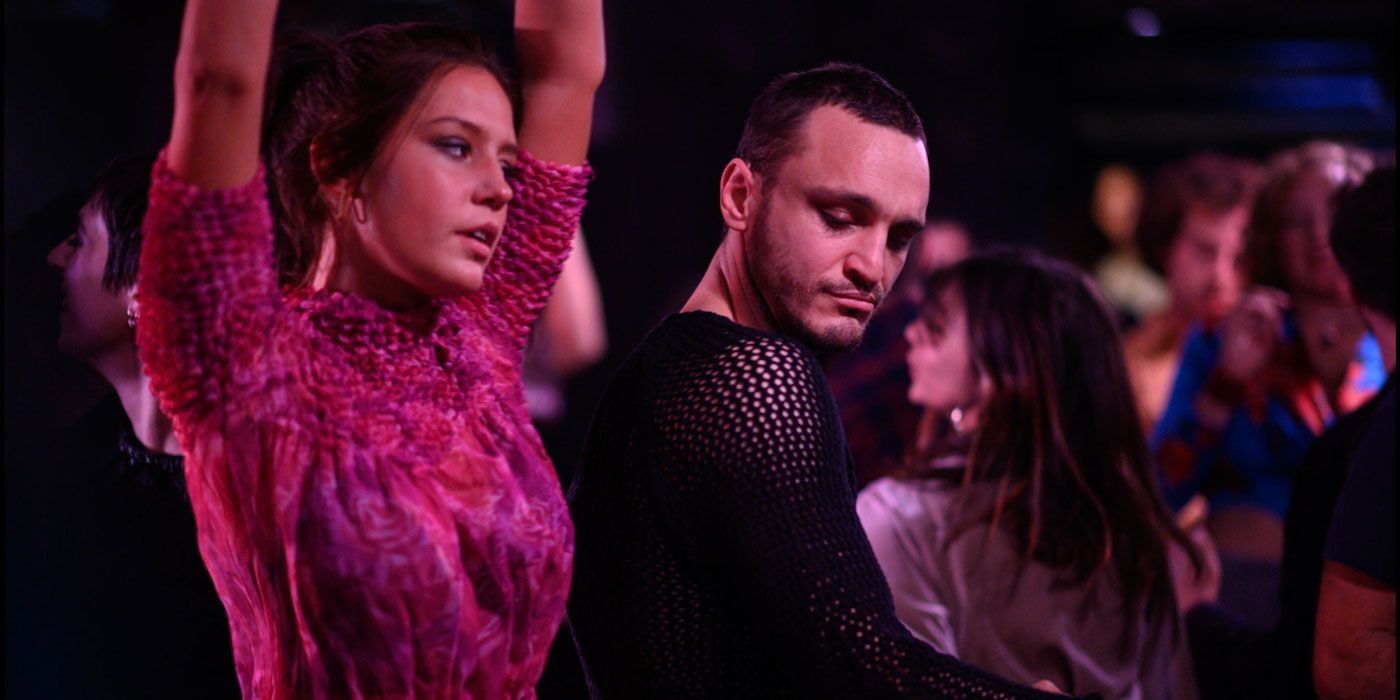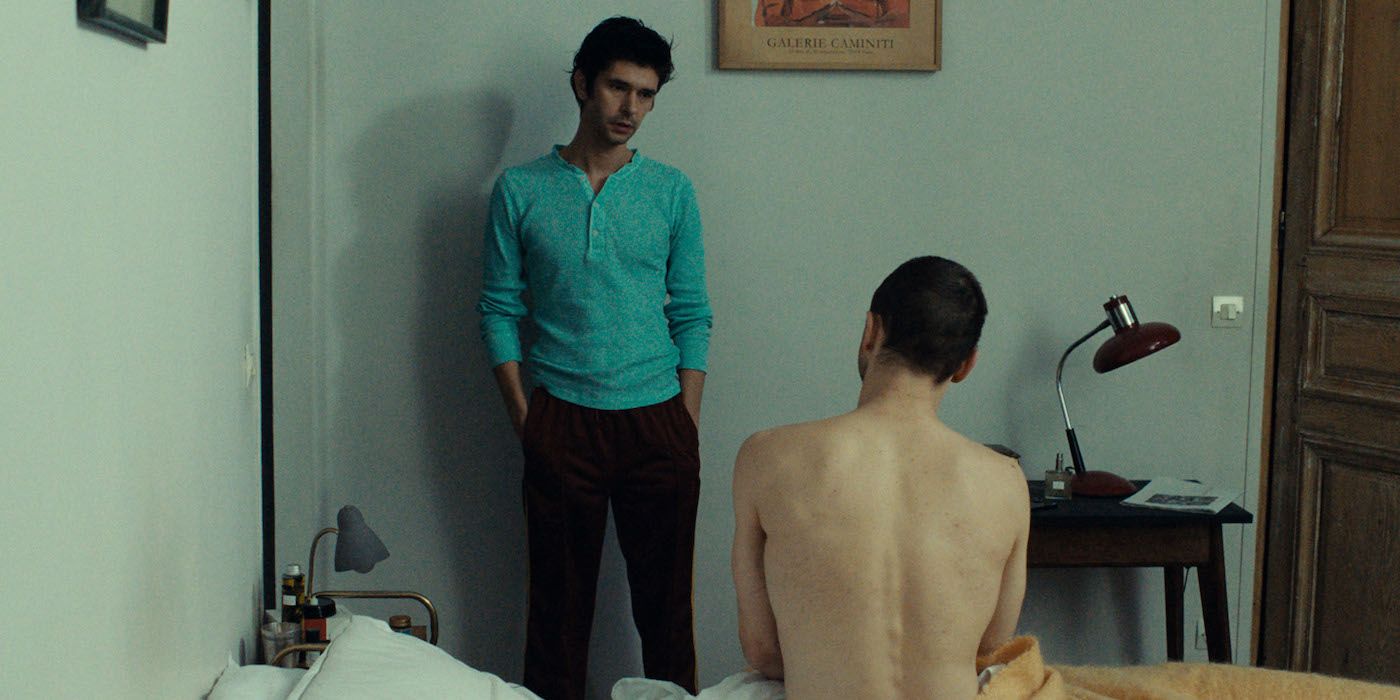This review was originally part of our coverage for the 2023 Sundance Film Festival.
In the opening moments of Ira Sachs’ Passages, we watch as Tomas (Franz Rogowski), a German filmmaker works on his set. He's not content with his actors, even criticizing how they walk down the stairs in a way that he doesn't find to be realistic. While naturally, it makes sense for a director to have that level of control on his set, Tomas seems to want to control the situation around him in his life. After filming one day, Thomas goes to a party, where he meets and goes home with Agathe (Adèle Exarchopoulos). Yet the next morning, when he goes home to his worried husband, Martin (Ben Whishaw), he desperately wants to tell him about his sexual escapades, almost as if the retelling is as exciting as the sexual escapade.
Passages, also written by Sachs and Mauricio Zacharias, explores the dynamic between these three characters, who have inadvertently been brought together due to the interests of Tomas. His self-involved behavior shows that he wants what he wants and doesn’t really consider how this might impact those he claims to love. Tomas seems to want the companionship and certainty of his marriage with Martin, yet his new relationship with a woman deeply interests him in an unexpected way. Maybe it’s a lack of awareness, or maybe he’s so self-interested that he just doesn’t care about how he treats others.
Yet despite how questionable Tomas’ actions might be on paper, Rogowski’s performance and the script by Sachs and Zacharias manage to make him not seem like a monster. In one scene at a party, we see just how electrifying being in the presence of Tomas can be, and we can understand why Agathe and Martin would go through such uncertainty to be with this man of constantly shifting interests. But Rogowski is also just a delight to watch on screen, especially when playing a morally ambiguous character such as this. Tomas is both sexy and intriguing, a type of personality that someone might want to be near, regardless of the consequences of this closeness. Even though we question how other characters might be able to put up with this nonsense, we also understand why they would also go through such pain.
But what truly makes this story vanity and ego works are what Agathe and Martin bring to this equation. Whishaw as Martin is much more vocal about his disapproval of what Tomas is doing, yet he can’t help but stay away. While Tomas seems fairly flippant in his relationships, through Martin, we see a much more accepted understanding of what a relationship can be, longing for the normalcy and to avoid the frustrations that Tomas’ choices have caused. On the other hand, we have Agathe, who internalizes much of her struggle, even as the relationship grows in its seriousness. While Martin might fight and leave Tomas, Agathe is much more the type to cry to herself while Tomas and Martin make love in the room next door.
The most beautiful segment of Passages comes when Martin and Agathe come together for the first time without Tomas waiting in the wings. It's a moment of acceptance over their shared love, the struggle it has caused on both of them, and the deep hurt that this man has caused on both of them. For each of them, it seems as though they are able to accept what is being done to them under the guise of love, but seeing someone else going through this same difficulty with the same person is almost the mirror that they need.
Like Sachs’ 2014 film Love Is Strange, Passages delves into the mire of relationships, and the lack of a “right choice” as to what to do in such complicated bonds. Sachs’ story comes to life thanks to these three excellent performances that aren't afraid to explore the selfishness and desires of passion, in a story that finds the power of shared pain and love.
Rating: B
Passages is in theaters now.


